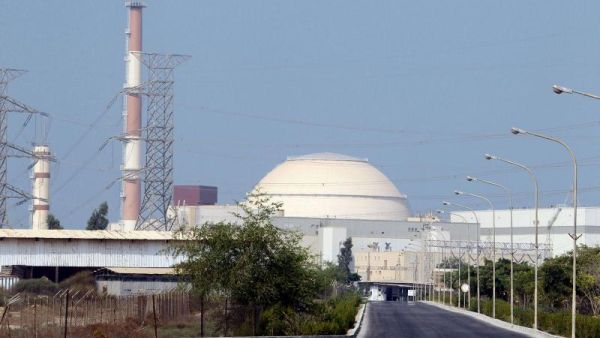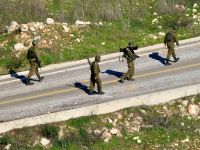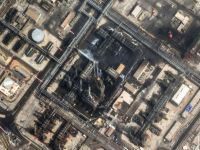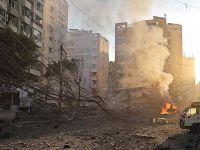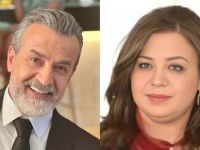The year 2022 is likely to be the annum that sees the USA rejoin the Joint Comprehensive Plan of Action. Off course this is not certain but all the indications at the present Vienna nuclear talks suggest the United States and Iran would indeed revitalize the 2015 JCPOA deal which Washington muzzled out off through the blessing of the now ex-president Donald Trump in 2018.
France Says Progress Has Been Made in Iran Nuclear Deal Talks
— Antiwar.com (@Antiwarcom) January 8, 2022
Russia says all participants in the talks now realize progress has been made
by Dave DeCamp@DecampDave #Iran #JCPOA #France #ViennaTalks https://t.co/eRSrM93NF8 pic.twitter.com/eEbyDD4CJ3
But that’s history. Although the talks that begun last 29 November may have started on the wrong foot with widespread tensions especially on the part of the western powers of Britain, France, Germany and indirectly the US and excluding Russia and China, the situation is markedly different today. There is a renewed sense of optimism among all the meeting parties that things would move forward.
As well, there is more flexibility on the part of Iran; it no longer demands the removal of sanctions as a pre-condition for the nuclear talks as was the case when the sessions started but is prepared, and starting and willing, to move on multi-dimensional levels. Its initial 'maximalist' approach has been dropped.
Since 29 November and as the dialogue of the 4+1 parties and Tehran continued to meet, the Iranian equilibrium and perception was lowered thanks to the Russian and Chinese delegates. They, and through developing a close relationship with the Iranians persuaded them to play the political game for want of a better term, and become more reasonable in their approach to the demands expected of them.
#BREAKING #London(VCA #News | #World Report) #Iran put three ballistic missiles on display at an outdoor prayer esplanade in central #Tehran on Friday, as talks in Vienna aimed at reviving Tehran’s nuclear deal with world powers flounder. pic.twitter.com/xmCzXVQJYU
— VCA NEWS LONDON (@vcanews_uk) January 8, 2022
By the same token the European parties lead by Enrique Mora are using the good offices of the Russians to convey their viewpoint regarding the need to check proliferation and increase inspection. Russia also, through its chief representative to the talks Mikhail Ulyanov, is conveying messages to the Americans about the different stages of the negotiations.
Iran as of yet, still refuses to talk to the USA directly but Washington is watching through its US Iran envoy Rob Malley. While this could be interpreted as good to the Russians, no doubt increasing their prestige and influence, it slows down the negotiating process because of the time spent in going back and forth and the possible misunderstandings that this causes.
Political Analyst Tohid Asadi says one of the necessary factors which should take place in the Vienna talks is a shift from political issues to more technical issues, which could result in some practical outcome. pic.twitter.com/2Cm1kEldhf
— Press TV (@PressTV) January 7, 2022
However, this actually means the talks are moving positively and with a sense of purpose for the world powers and Iran despite the micro-elements and details that are involved. There are for example, technical glitches that need to be ironed out. They include the issue of the uranium that has been built up and stored as well as the uranium enrichment. The 2015 accord - and as negotiated under the Barack Obama administration - capped enrichment at 3.67 percent.
After 2018 when Washington broke out of the deal Iran started to enrich at 60 percent, well on the way to making a nuclear bomb, the so-called ‘breakout time’ needed for the threshold. Obviously, this is not acceptable for the 4+1 Group. But now the problem is arising about what to do with the excess uranium. Iran doesn’t want to get rid of the stock but there is talk that Russia might be an acceptable place to store this highly radioactive material.
There's finally reason for optimism in the #ViennaTalks. Dr. @AssalRad and I summarize the latest developments and discuss how the US can push this deal over the finish line. Hear the full conversation @ConvSix: https://t.co/7ijoTDUFvM pic.twitter.com/xOkYyPGNmO
— Joe Cirincione (@Cirincione) January 7, 2022
Then there is the problem of the centrifuges. The most obvious question of these is: What do you do with them? These are vital for enrichment and after 2018 they were revamped and developed to produce the high-grade uranium needed for nuclear weapons. There is talk by the Europeans these could be dismantled and thus slowdown the process of nuclear enrichment. These are the issues that are under the table.
As well, Iran now wants guarantees from the US and president Joe Biden that a deal reached won’t be ‘dishonored’ by a future incoming US administration as in the case with Trump when he, at point blank, took America out of the international agreement under the eyes of the United Nations.
Vienna talks on reinstating the nuclear deal progressing but slowly; Iran wants assuranceshttps://t.co/NcmQaEordZ
— Iran News by Kodoom (@IranNewsHub) January 7, 2022
These are potentially ‘sticking’ points but everyone feels certain - especially with Russian wheeling and dealing - that they could be sorted out to the satisfaction of everyone. Even the Israelis who have and are still threatening to torpedo the agreement are somewhat changing their tune. It’s Foreign Minister Yair Lapid says Israel would be prepared to accept a ‘good’ accord making it clear that Biden and his team could be leaning on them.
Finally, the Europeans and the Americans want a quick agreement possibly to be made within weeks. Washington says this would show Tehran is serious. However, the Iranian delegates lead by Ali Bagheri Kani says they will not be rushed and everything would need to be negotiated. That could talk months but a good and gesture for the Iranians is to remove the sanctions, point blank, that were imposed on Tehran.


